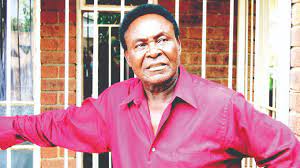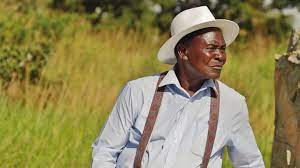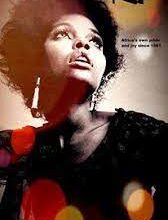Aaron Chiundura Moyo, The Farm boy who Rose to be Zimbabwe’s Finest Writer

Aaron Chiundura Moyo

By ZimLegends Correspondent
Prolific novelist, playwright and actor, Aaron Chiundura Moyo, will never forget the day he was told by a school headmaster to go and get married when he sought enrolment for secondary education.
That was to be part of a long journey towards stardom, a journey synonymous with the storyline of the television series, Tiriparwendo (we are on a journey) which Moyo crafted about four decades later.
As was the norm with children who grew up on farms in the sixties, Moyo had a delayed entry into school enrolling for Grade one, then sub A, at the age of fifteen. By the time he wanted to enrol for secondary education he was already in his twenties.
“I was rejected at three schools in Gweru, St Patrick, Ascot and Bumburwi because of my age. The headmaster at Bumburwi told me to go and get married because I was a grown man. I remember walking home sad and discouraged and about to give up on school,” Moyo told Chipo Musikavanhu of Let’s Talk African blog.
Born in Gwelo in 1950, the prolific writer was named Chiundura by his parents. Moyo later had the name Aaron added on his national identity card by registry officials who felt Chiundura was not appropriate as a first name. He also had to have his date of birth adjusted to 1954 to appear younger.
Moyo’s father who had several wives, was employed as a builder at a farm in the Guinea Fowl area, 12 kilometres outside Gweru. The farm was owned by a Mr Maclean and was popularly known as Shoe Shine. Moyo recalls bitter experiences of oppression of black people at white-owned farms then. One disturbing incident was of a young black boy who was shot dead by a white farmer as punishment for fighting with a white boy.
Moyo did his primary education at Shoe Shine farm school where he enrolled at the age of 15. He says the school had only one teacher catering for about a hundred pupils. In 1969, Moyo went to Connemara Primary, a Government school near Gweru where he set for his standard six examinations.
He eventually got a place for secondary education at Mambo Secondary after being rejected at three schools because of his age. After completing high school, Moyo worked on a farm near Gweru, before he relocated to Salisbury now Harare, where he was employed as a gardener.
Moyo later studied journalism in Germany. Around the year 2 000 he resumed studies when he enrolled at Zimbabwe Open University but had his studies interrupted as he focused his attention on designing Studio 263, the first local soap which featured on Zimbabwe Television from 2002.
He says his interest in writing was influenced by his father, a great orator, who used to share folktales with his children.
“My father also loved listening to drama and poetry on radio.” Moyo recalls the visit to his school in 1968 by a marketing officer from the Literature Bureau who said writing did not require one to be very educated. He also said people were free to write in the language they are comfortable with. “My strength was in the Shona language and moreover, I used to think that my messages were not relevant to white people.”
Encouraged by the words from the marketing officer, Moyo started writing his first piece of work while seated in a scotch cart.
“My uncle who checked on what I was writing seemed to enjoy my work. This was before one of my brothers read the story and realised that it was from one of my father’s folktales. I got so
discouraged that I tore the piece of paper,” he said.
Moyo says one of his friends, Tichaona Sibanda, told him about a radio program called Mabhuku Nevanyori (meaning Books and Writers) where he could submit his works for airing on radio.
This encouraged Moyo to write his first story Mahwekwe naSarudzai Patsime (Meeting Sarudzai at the well) which he produced while still in primary school in 1969. The story was featured on the Rhodesia Broadcasting Corporation African Service radio programme a year later.
The exposure on radio encouraged Moyo to start working on his first novel titled Sarai Mugarike. He submitted the manuscript to Mambo Press and it was rejected as substandard.
But Moyo did not give up. He instead resubmitted the same works to Literature Bureau where it was again rejected. The then budding writer was later referred to the Bureau’s chief editor, Hosiah Charles Singende. With the assistance of the chief editor, the novel was renamed Uchandifungawo (you will remember me) and was published in 1975.
In 1987, Moyo joined ZBC and he subsequently produced his first local drama Chioko Muhomwe (Iwhat is in the pocket}.He also presented his dramas on radio shows and some of the radio drama include Kudzidza Hakuperi (learning does not end). He was also the brains behind Studio 263 the country’s first soap. His mind boggling Tiriparwendo television series was a rare production which sent viewers back in time to the pre-civilisation era in Zimbabwe and on the African continent in general. Moyo must have felt like telling the untold stories to the young generation who now rely on foreign real life story films from Hollywood and of late some from the eastern bloc, as a result of the look east policy.



